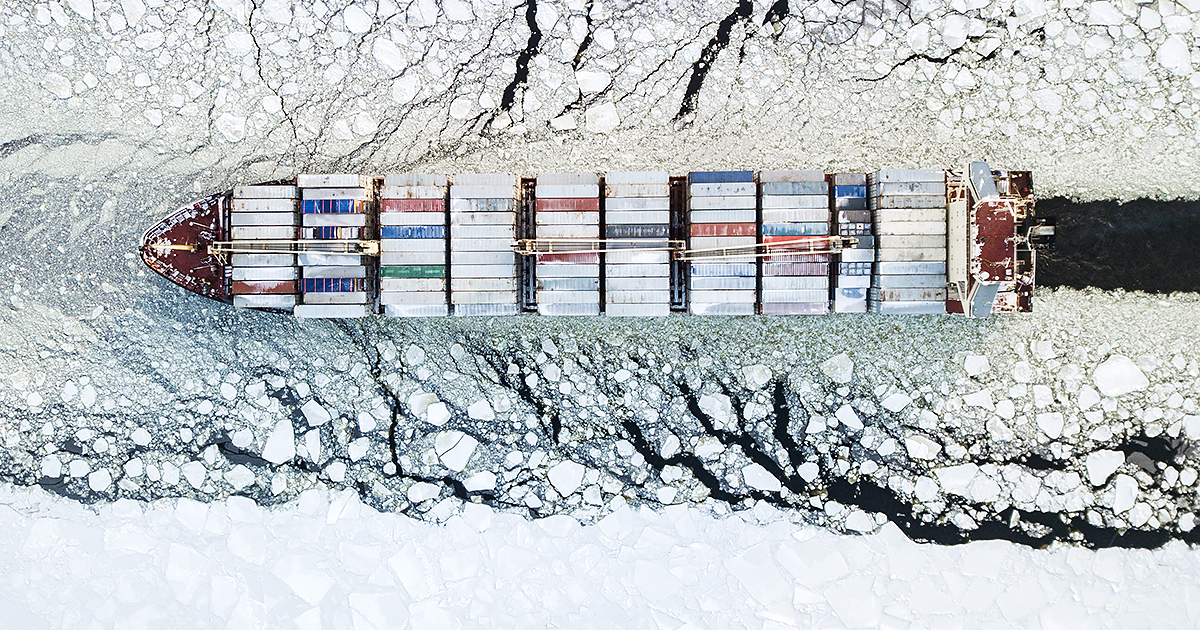No significant progress in IMO negotiations on measures to reduce emissions from international shipping

In its session that concluded on 26 November, the Marine Environment Protection Committee (MEPC) of the International Maritime Organisation (IMO) discussed measures to reduce greenhouse gas (GHG) emissions from international shipping. No significant progress was made at the meeting.
However, the states did agree on voluntary restrictions on black carbon emissions in the Arctic region, on taking wind energy into account in the vessel energy efficiency calculations, and on a strategy to reduce marine plastic litter from ships.
Several states objected to effective measures to reduce emissions, using the lack of economic impact assessments as an argument, among other things. Finland and other EU Member States supported the introduction of a global market-based emissions reduction instrument that would be based on a fuel levy or the carbon content of the fuel, and a fuel standard aimed at emissions reduction. No progress was made on these issues due to objections made by several states.
Discussions on these and other mid- and long-term emission reduction measures will continue at working group level in spring 2022 and at the next MEPC session in June 2022.
Proposal for a resolution that would tighten the emissions reduction target set for 2050 was also discussed. Like other EU Member States, Finland was in favour of raising the global GHG reduction target from the current 50 per cent to 100 per cent by 2050. In addition, Finland and other EU Member States supported the statement of small island states, which underlines the necessity to strive for zero emissions by 2050 in order to achieve the temperature targets of the Paris Agreement.
As previously agreed, the decision to set more stringent targets is to be made in connection with the update of the Initial IMO Strategy for Reducing GHG Emissions from Ships. Work to update the strategy will begin at June 2022 session of the MEPC.
Finland and other EU Member States did not support a separate resolution because negotiations on the wording of the resolution would have taken time from negotiations on concrete emission reduction measures. Therefore, it seemed clear that a separate resolution on the matter in this session would not have been an effective way to reduce emissions.
Restrictions on black carbon emissions in the Arctic region encouraged
Finland and several other Member States of the Arctic Council, some EU Member States and small island states proposed a resolution encouraging the voluntary use of distillates in the Arctic region. Use of distillates will reduce black carbon emissions from international shipping. These emissions are harmful especially in the Arctic region. The resolution was adopted after tight negotiations.
More detailed rules for the use of exhaust gas cleaning systems
Exhaust gas cleaning systems, or sulphur scrubbers, process the exhaust gases of high sulphur fuels. More detailed guidelines on the inspection and approval of sulphur scrubbers were adopted at the session. This will allow for more consistent application of the rules.
In terms of sulphur scrubbers, Finland is bound by the EU's common positions. Following the implementation of the sulphur directive, the matter falls within the competence of the EU. Once the impacts of the planned restrictions have been assessed, Finland will strive to globally limit the discharge of scrubber washwaters into the oceans.
Changes in ways wind energy is accounted for in vessel energy efficiency calculations
The amendments adopted to the guidance on the use of wind energy will improve the Energy Efficiency Design Index (EEDI) when calculating the Energy Efficiency Design Index for existing ships (EEXI). Finland, together with the Netherlands, Spain, Japan, Comoros, France, Germany, and RINA, representing ship designers, proposed these amendments to promote the use of wind propulsion systems on ships.
Adoption of strategy for reducing marine plastic litter from ships
The Committee adopted a marine plastic litter strategy that will guide and monitor the implementation of the plastic litter work programme adopted in 2018. The strategy aims to strengthen international regulation that prohibits the discharge of marine plastic litter from ships into the ocean. The strategy aims to stop all plastic litter discharge into the oceans by 2025.
In this round of negotiations, the majority of the states supported Finland's proposal on new arrangements to intensify IMO negotiations on the reduction of greenhouse gas emissions. However, a significant number of states continued to object. Negotiations on the matter will continue in working groups in spring 2022.
Finnish attendees at the remote meeting of the Marine Environment Protection Committee (MEPC) of the IMO (International Maritime Organization) on 22-26 November 2021 included representatives of the Ministry of Transport and Communications, the Ministry of the Environment, the Finnish Transport and Communications Agency (Traficom), the Finnish Meteorological Institute and the Provincial Government of Åland.
Inquiries:
Eero Hokkanen, Ministerial Adviser, tel. +358 50 476 0401, eero.hokkanen(at)gov.fi, Twitter @eerohokkanen
Anita Mäkinen, Chief Specialist, tel. +358 40 162 4592, anita.makinen(at)traficom.fi, Twitter @AnitaMakinen
Päivi Antikainen, Director of Unit, tel. +358 50 382 7101, paivi.antikainen(at)gov.fi, Twitter @PaiviAntikainen
Press release, 5 July 2021: IMO agrees weak solution to reduce greenhouse gas emissions from shipping
International Maritime Organization (IMO): Marine Environment Protection Committee (MEPC)



